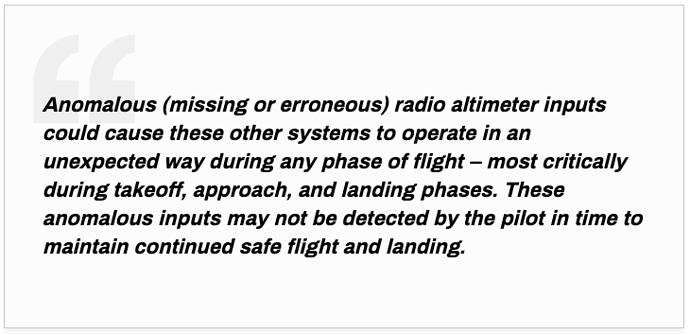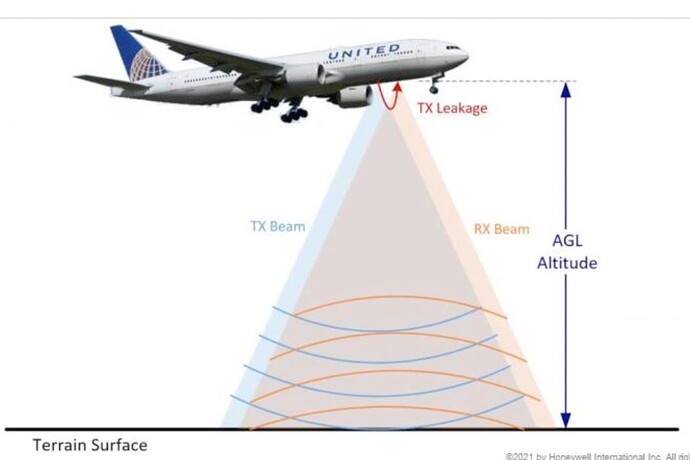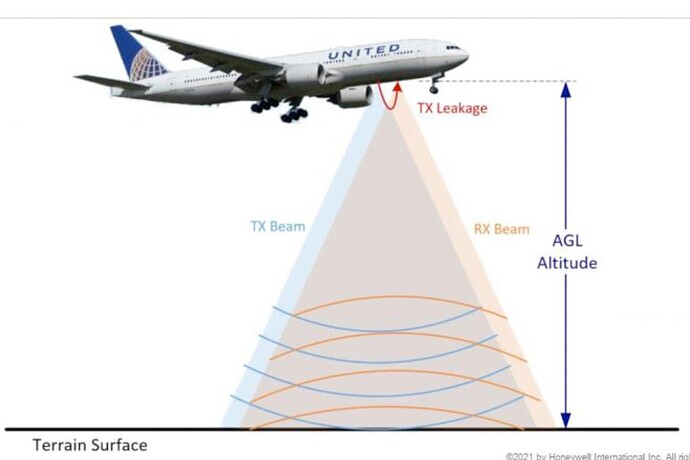https://www.rt.com/news/544263-5g-aircraft-safety-systems/
The US Federal Aviation Administration (FAA) has warned that 5G networks could interfere with a wide range of aircraft safety devices, identifying more than a dozen key systems potentially affected by the new frequencies.
The FAA issued the broadened safety bulletin on Thursday, outlining new concerns on how 5G networks could impact aviation while stating that it is working with telecom providers to ensure the two can “safely coexist.”
The agency had previously warned that 5G could disrupt aircrafts’ radio altimeters – which allow planes to land in low-visibility conditions, among other things. But its latest notice states that anomalous data readings from altimeters could in turn affect a “wide range” of other safety systems, naming at least 17 – from terrain awareness and ground proximity, to take-off and flight control, as well as various warning systems.
Fears over interference with radio altimeters prompted the FAA to impose a new rule earlier this month, which barred pilots from using the system at low altitudes in areas where 5G signals could affect onboard instruments.
Thursday’s bulletin comes just one day after aviation and telecommunications firms met to discuss 5G, agreeing to share data to resolve outstanding concerns. While AT&T and Verizon previously agreed to postpone their 5G rollout to January 5, aircraft companies have continued to push for further delays.
Earlier this week, industry giants Boeing and Airbus penned a letter to the Biden administration, warning that “5G interference could adversely affect the ability of aircraft to safely operate,” and could have an “enormous negative impact on the aviation industry.” Until those problems are addressed, the firms called for a pause on widespread 5G rollout. Despite the new safety warnings from the aviation regulator, however, it remains unclear whether it will heed the companies’ request for another delay.
https://www.rt.com/business/543876-boeing-airbus-5g-risks/
The world’s two largest planemakers, Boeing and Airbus, have called on the US government to delay the rollout of new 5G cell services next month, citing an “enormous negative impact on the aviation industry.”
In a joint letter to US Transportation Secretary Pete Buttigieg, the bosses of the two companies warned that “5G interference could adversely affect the ability of aircraft to safely operate.”
The letter cited research by trade group Airlines for America, which found that if the Federal Aviation Administration’s (FAA) 5G rules had been in effect in 2019, about 345,000 passenger flights and 5,400 cargo flights would have faced delays, diversions or cancellations.
According to a new rule, announced by the FAA earlier this month, pilots are forbidden from using auto-landing and other certain flight systems at low altitudes where 5G wireless signals could interfere with onboard instruments that measure a plane’s distance to the ground.
The new rule comes as US telecom giants AT&T and Verizon are due to deploy 5G services on January 5.
Last week, United Airlines CEO Scott Kirby said that the FAA’s 5G directives would bar the use of radio altitude meters at about 40 of America’s biggest airports.


